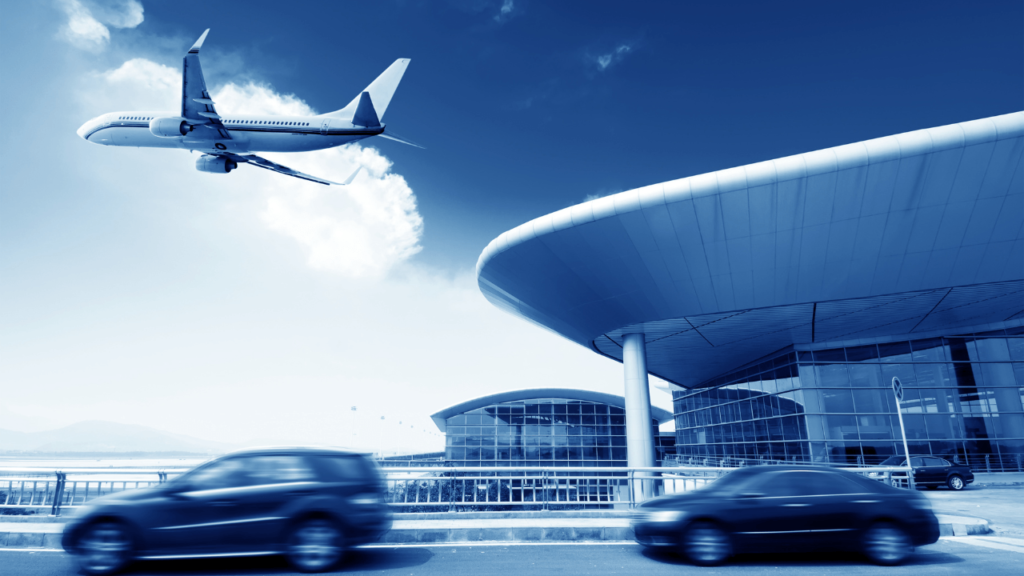Transport
Paras'n Transport Service offers

Paras’n Transport Service offers seamless and reliable
transportation for all your travel needs. Whether you need to be escorted
from the airport, hotel, or home, our professional drivers are always ready to
serve you. Enjoy a smooth ride to a variety of destinations throughout the
city, with personalized service that ensures comfort and convenience. With
Paras’n, you’re not just getting from point A to point B — you’re
experiencing a journey that prioritizes your safety, satisfaction, and peace of
mind. Wherever you& re headed, let us take you there with ease and care.
Transport is the backbone of any economy, connecting people, goods, and services across vast distances. From the daily commute to the global supply chain, efficient transport systems play a crucial role in the functioning of modern societies. Whether it’s by land, air, or sea, transportation enables trade, fosters economic growth, and enhances the quality of life by providing access to essential services and opportunities.
Types of Transport
Transport can be categorized into several types, each serving specific purposes and catering to different needs:
Road Transport: This is the most common form of transport, including cars, buses, trucks, and motorcycles. Road transport offers flexibility and convenience, especially for short to medium distances. It is essential for the movement of goods and people within cities and across regions.
Rail Transport: Railways are a key mode of transportation for both passengers and freight. Trains are particularly efficient for long-distance travel and the transportation of heavy or bulk goods. Rail transport is also more environmentally friendly compared to road transport, as it produces lower emissions per ton of freight.
Air Transport: Air travel is the fastest mode of transport, connecting major cities and countries around the world. It is indispensable for international travel and the quick delivery of high-value or time-sensitive goods. Despite being more expensive and energy-intensive, air transport plays a critical role in global commerce and tourism.
Sea Transport: Shipping is the primary method for transporting large quantities of goods over long distances. Sea transport is vital for international trade, as it allows for the movement of heavy and bulky cargo, such as oil, coal, and consumer goods, across continents. Ports are key nodes in the global supply chain, linking sea transport with other modes of transportation.
Public Transport: Public transportation systems, such as buses, trams, and subways, are essential for urban mobility. They offer cost-effective and sustainable solutions for reducing traffic congestion and pollution in cities. Public transport also ensures that people without personal vehicles can access jobs, education, and other essential services.
The Role of Transport in the Economy
Transport is a critical component of economic development. It facilitates trade by enabling the movement of goods from producers to consumers, both domestically and internationally. Efficient transport systems reduce the cost of goods and services, making products more affordable for consumers and boosting the competitiveness of businesses.
In addition to its economic benefits, transport also plays a significant role in social development. It connects people to employment, education, healthcare, and recreational opportunities, improving overall quality of life. Transport infrastructure, such as roads, bridges, and railways, creates jobs and stimulates investment in related industries, further driving economic growth.
Challenges in the Transport Sector
Despite its importance, the transport sector faces several challenges that need to be addressed to ensure its sustainability and efficiency:
Environmental Impact: The transport sector is a major contributor to greenhouse gas emissions, particularly from road and air transport. Reducing the carbon footprint of transportation is essential for combating climate change. This can be achieved through the adoption of cleaner technologies, such as electric vehicles, and the promotion of public and non-motorized transport.
Infrastructure Development: Many regions, particularly in developing countries, lack adequate transport infrastructure. Poor road conditions, limited rail networks, and underdeveloped ports can hinder economic growth and access to essential services. Investing in infrastructure development is crucial for enhancing connectivity and promoting equitable growth.
Congestion and Traffic Management: Urban areas around the world struggle with traffic congestion, which leads to delays, increased pollution, and reduced productivity. Implementing smart traffic management systems, expanding public transport, and promoting alternative modes of transportation, such as cycling and walking, are essential for addressing congestion issues.
Safety and Security: Transport systems must prioritize the safety and security of passengers and goods. This includes implementing strict safety regulations, maintaining infrastructure, and using advanced technologies to monitor and manage transport networks.
The Future of Transport
The future of transport is being shaped by technological advancements and a growing focus on sustainability. Electric vehicles, autonomous driving, and smart transport systems are set to revolutionize how people and goods move. Additionally, the integration of different transport modes through multimodal transport systems will enhance efficiency and reduce environmental impact.
In conclusion, transport is a vital component of modern society, driving economic growth, connecting communities, and improving quality of life. By addressing the challenges and embracing innovation, the transport sector can continue to evolve and meet the needs of a growing global population.
